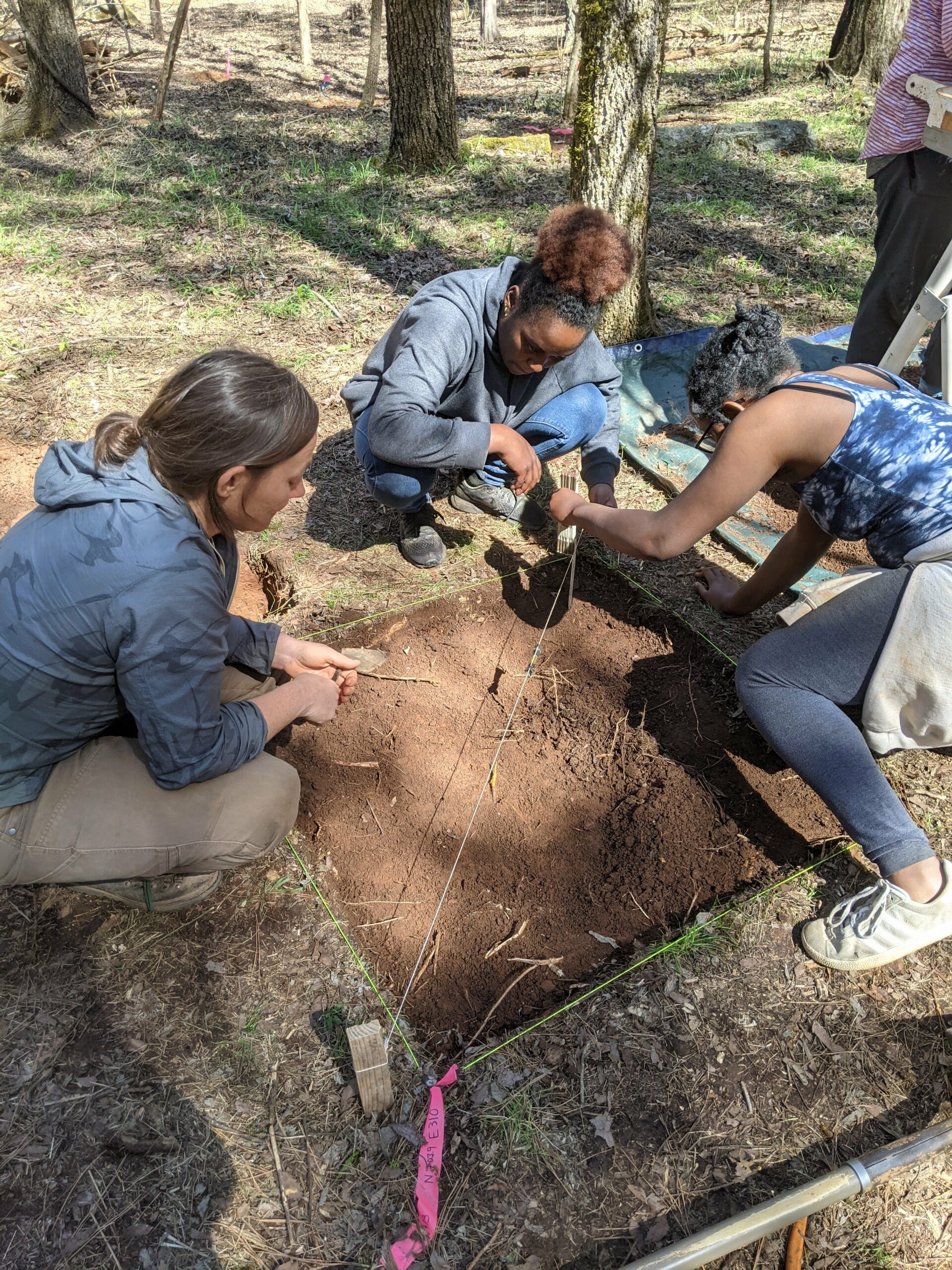By: Stacey Young, Archaeologist at South Carolina State Park Service
May 6, 2024
The Ask an Expert series features Q + A’s with people who are experts in a particular field or who have a depth of knowledge around historic preservation. We ask experts a variety of short answer questions and ask for their advice to Black preservation projects and leaders.
Would you be willing to be featured as an expert? Send us an email here.
| Q: Introduce yourself! Tell us a little about you. How did you get started in your field? What kind of projects have you worked on? |
|---|
| My name is Stacey Young and I am an Archaeologist for the South Carolina State Park Service. I am responsible for managing archaeological resources on all 47 operational parks and newly acquired properties. Generally, my responsibilities include resource protection, research, and education and interpretation. I have served in this position for 4 years and have been working professionally as an archaeologist for about 20 years. Prior to working with State Parks, I worked in the private sector for various Cultural Resource Management firms based in Columbia. I have worked across the eastern United States on various types of compliance related projects and archaeological sites ranging from lithic quarry sites used by Indigenous people 8,000 years ago to 50-year-old sites used for military training activities. As an undergraduate in college, I studied anthropology and became interested in communities; how people organize, form, and maintain communities and how communities develop and change over time. I enrolled in an archaeological field school one summer and learned how I enjoyed the physical aspects of the outdoor fieldwork as well as the thought-provoking nature of the investigations. Recently, I have been working on archaeological projects at Rose Hill Plantation, Redcliffe Plantation, and Sesquicentennial State Park looking for evidence of former buildings and spaces occupied and used by African Americans, trying to gain more understanding of these communities and engaging with descendant and local communities who have connections to the people or places. Many of these projects are working in partnership with archaeologists and anthropologists from the University of South Carolina and South Carolina State University which allows opportunities for training students in the discipline. |
| Q: What is your specialty or specific area of expertise? |
|---|
| My specific area of expertise is African American and Indigenous archaeology and I’m skilled at working collaboratively with communities to ensure projects respect their cultural heritage. |
| Q: How does your work in archaeology intersect with preserving African American historic spaces? |
|---|
| Archaeology is a tool that can be used to provide information about the lived experiences of African American communities and spaces. While buildings and documents may not survive, or even exist, the material culture (artifacts and landscapes) left behind and often buried over time can be used to inform us of past activities and help us recognize former spaces that may not be visible above ground. |
| Q: What do people in preservation need to know about archaeology? How is it relevant to them? |
|---|
| Many people do not realize that most archaeological work in the United States is conducted because there is a federal law (Section 106 of the National Historic Preservation Act) that requires this work be performed prior to any federal undertaking. If your preservation project is a historic building or space, it is possible that there are associated archaeological deposits. Archaeological investigations may provide additional information about people who used the space and how the landscape changed overtime. This information may enhance the interpretation and significance of the resource and allow you to tell a broader story. |
| Q: What steps would you recommend for people who are not a professional archaeologist? |
|---|
| If you are researching a privately owned property, make sure that you are talking with the landowner. If you are researching places or sites located on state or federally owned properties contact someone from the agency and inquire about any information or research materials in their files, and be familiar with the laws and regulations. Reach out to the State Historic Preservation Office (SHPO); they generally maintain a list of professional archaeologists working throughout the state and information about the services offered. The SHPO website also has a list of various archaeology resources across the state which may be applicable to your project. If you are interested in archaeological research, make sure to engage with professional archaeologists who have prior experience working on similar projects and are qualified to perform the work. Generally, if someone contacts me about a project that is not on SCPRT property, I try to connect them with an archaeologist that has expertise related to their research project. |
| Q: What do people in preservation need to know about archaeology? |
|---|
| Many historic places contain archaeological sites. When you are thinking about preservation projects, you should consider identifying and preserving the archaeological components as well. |
| Q: If you had to give just one piece of advice to folks who are looking to bring archaeology into their preservation project, what would it be? |
|---|
| Archaeology provides supplementary information which can enhance the documentary research or architectural resource. |

